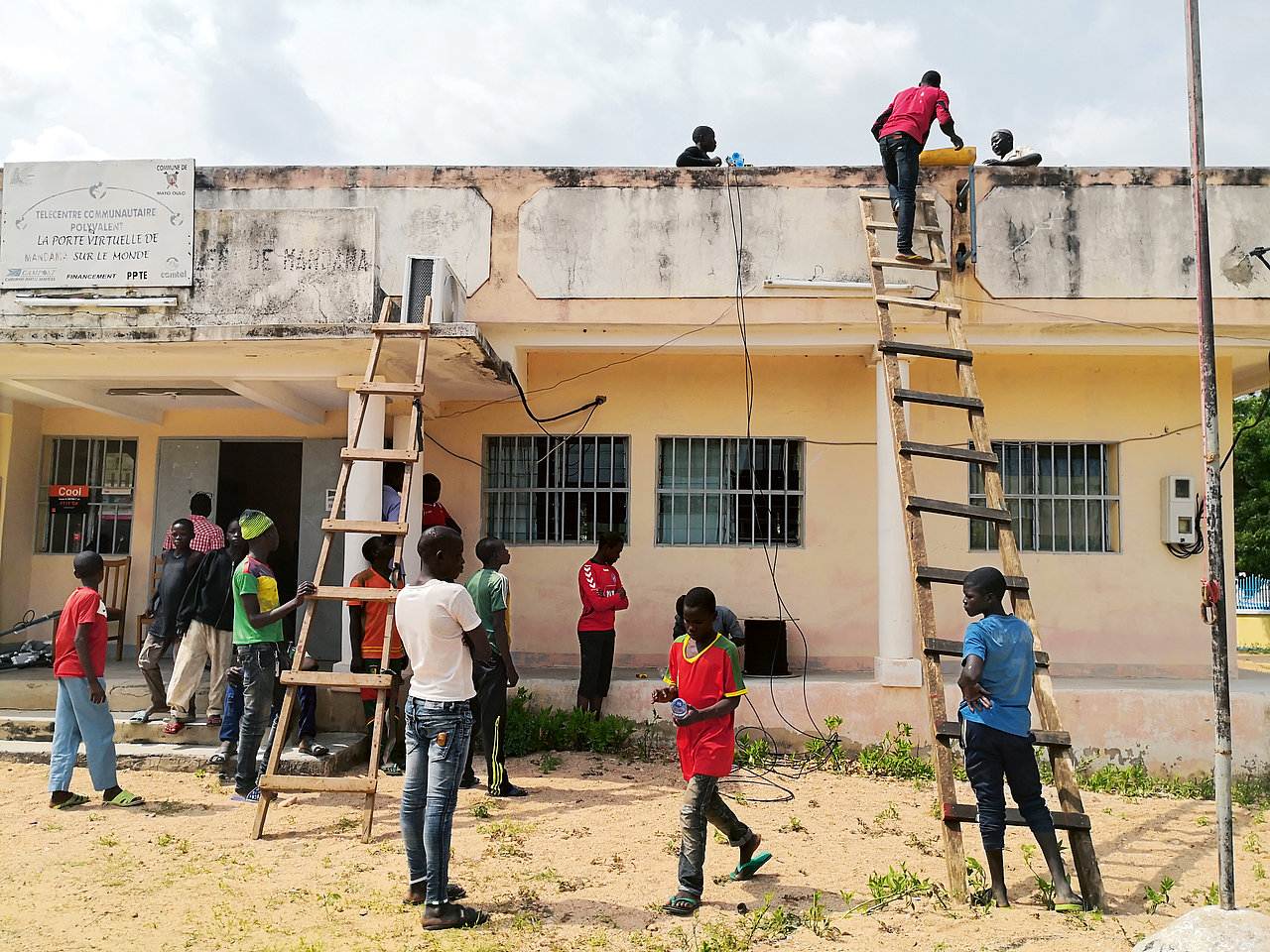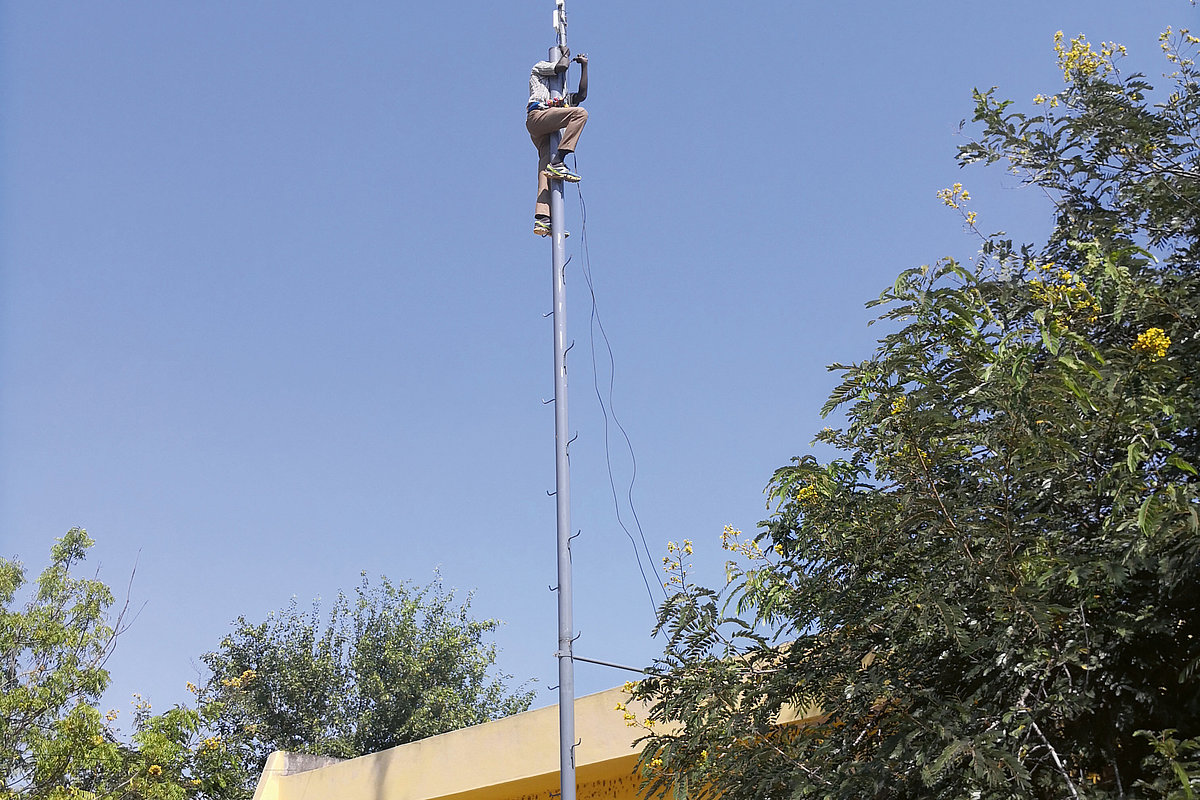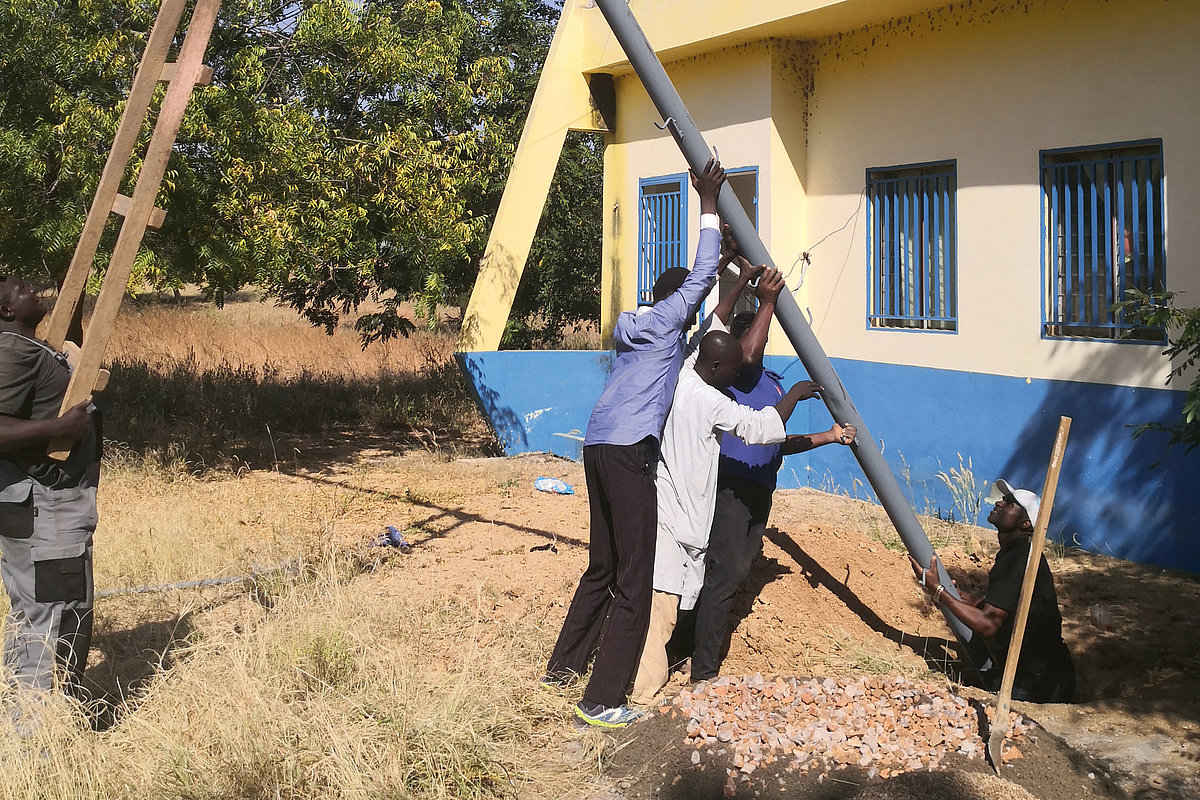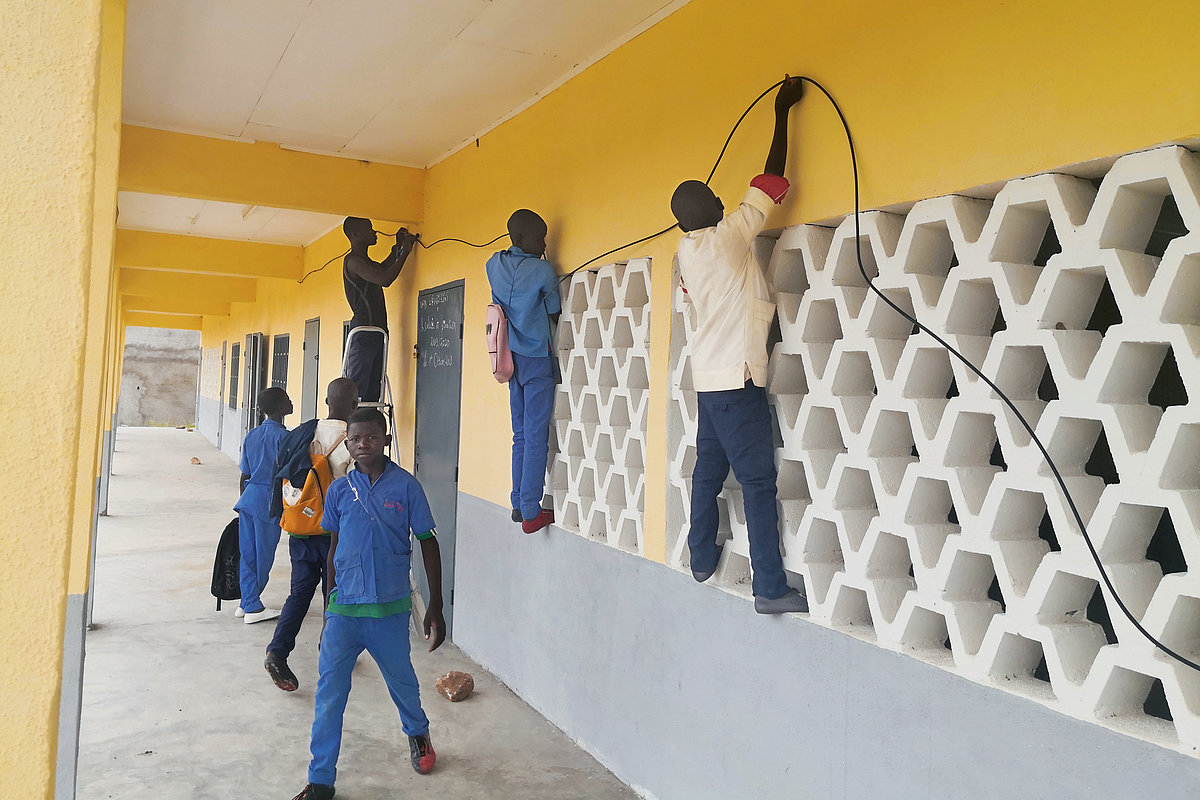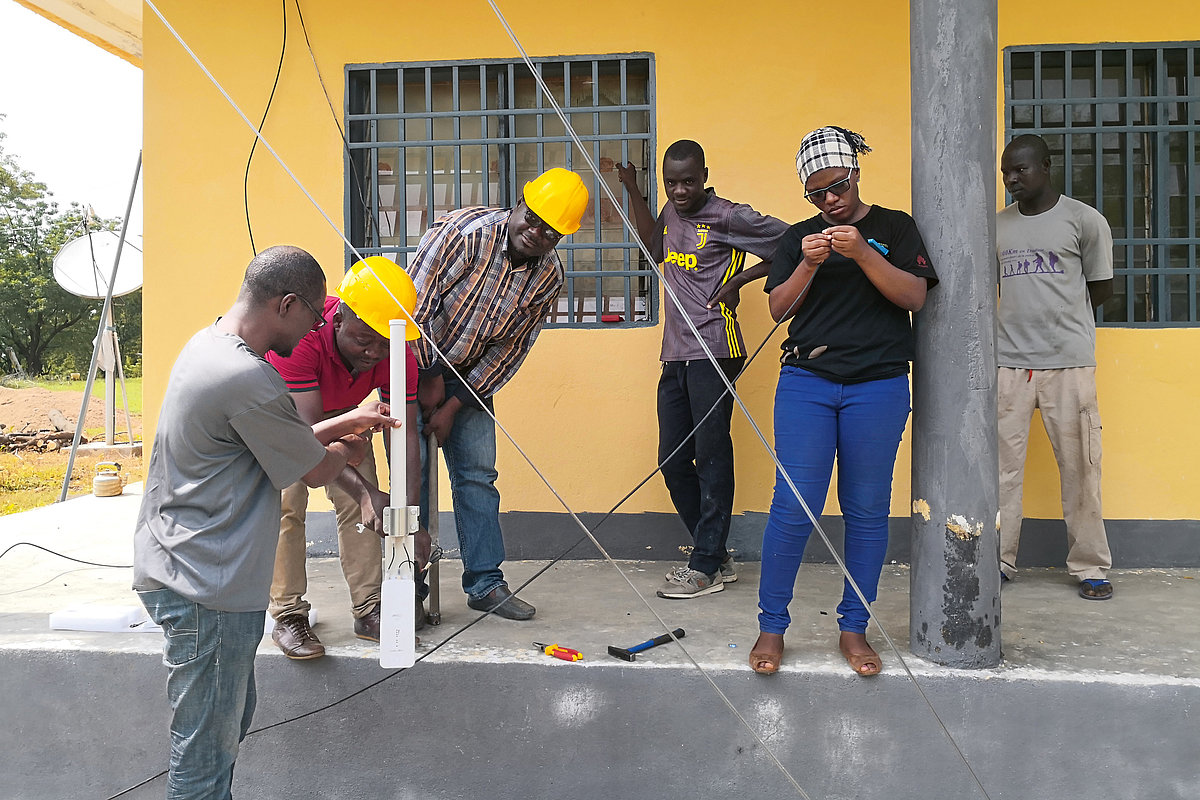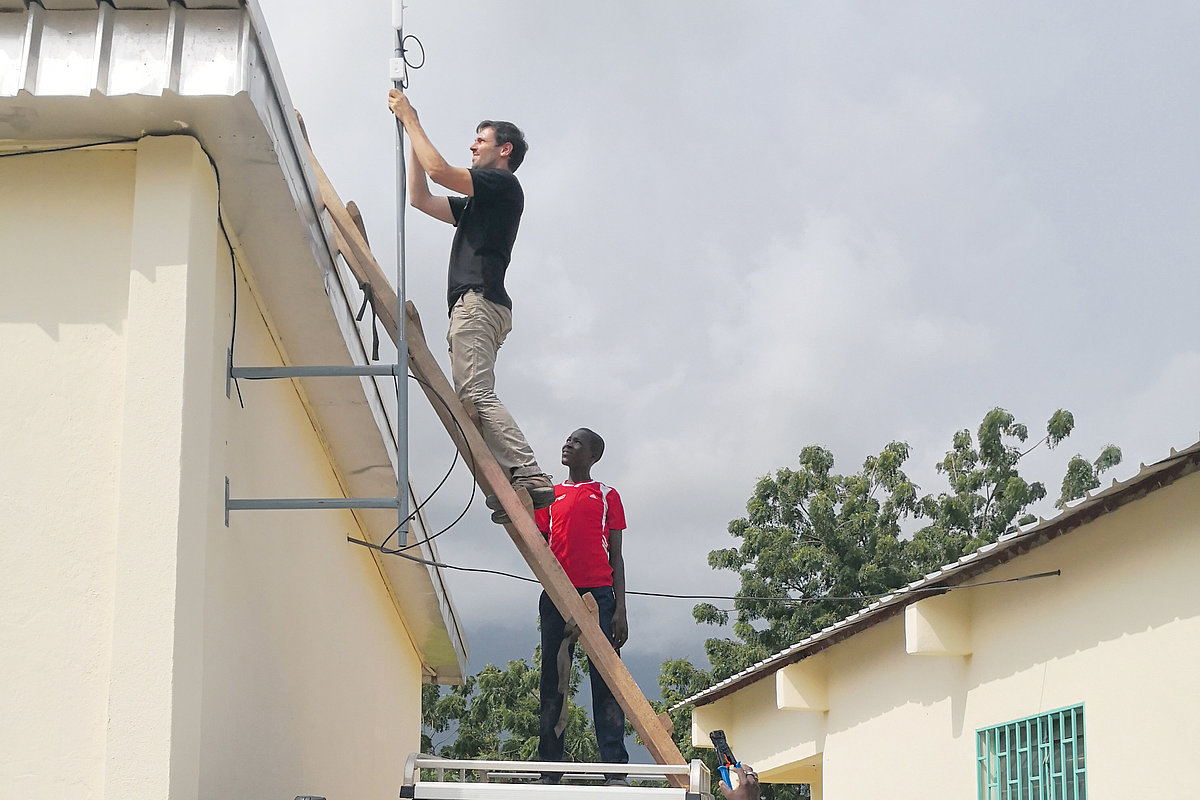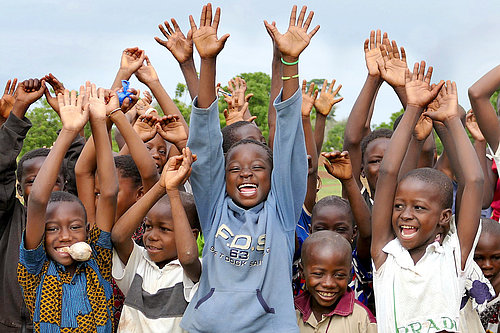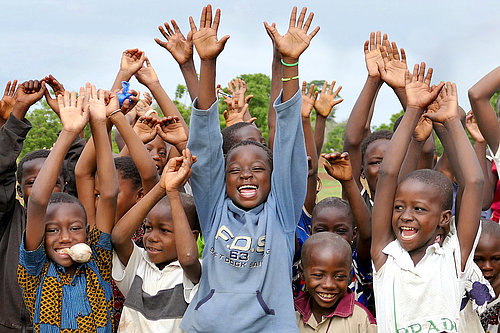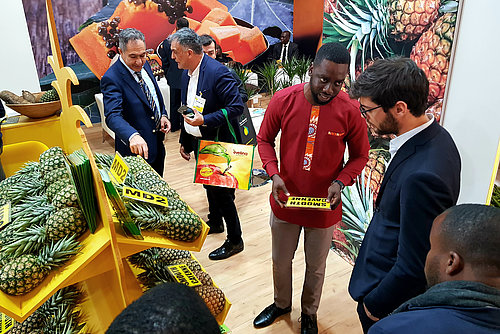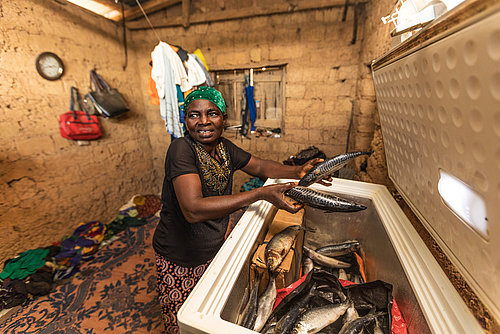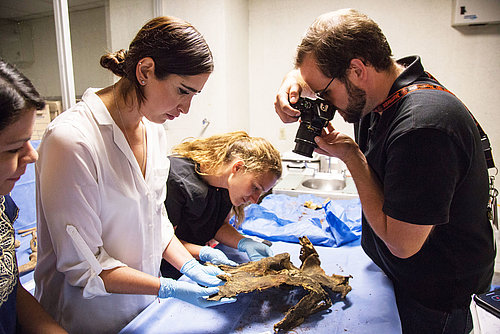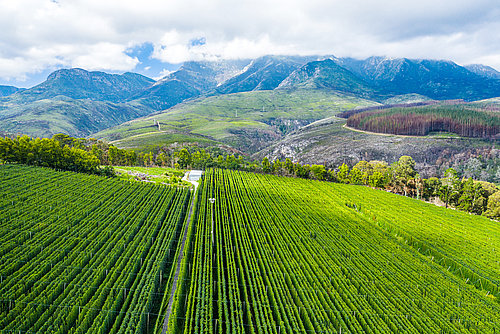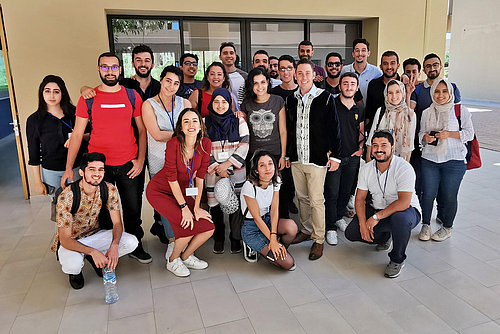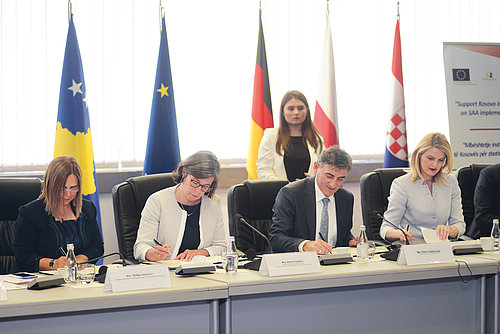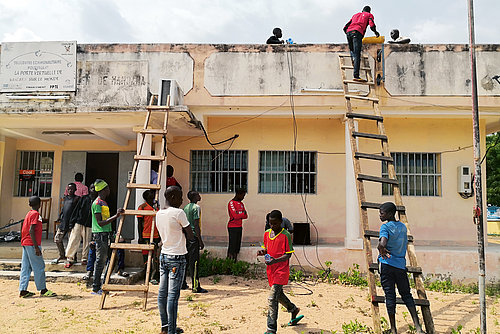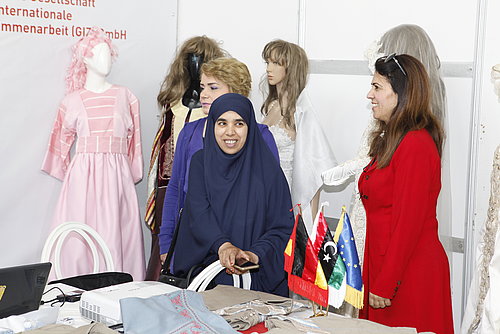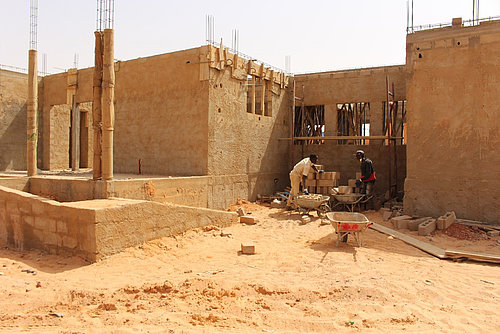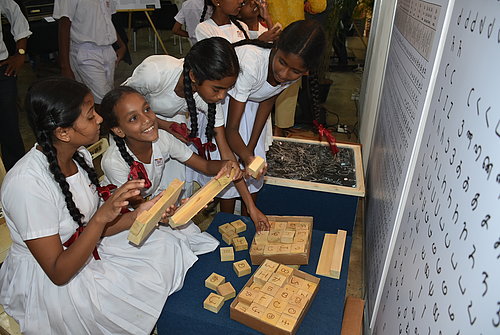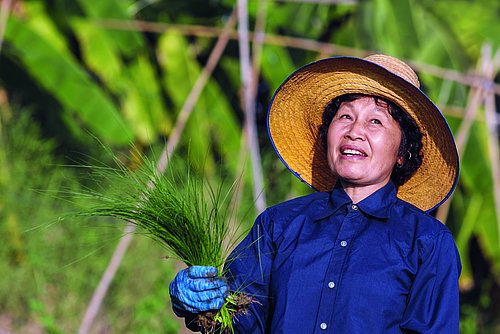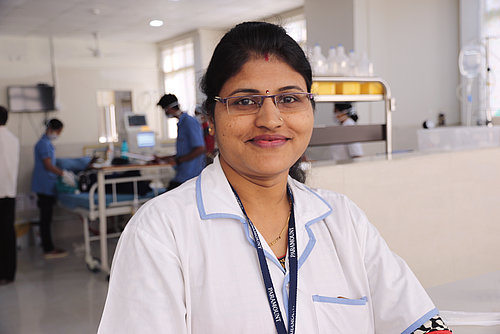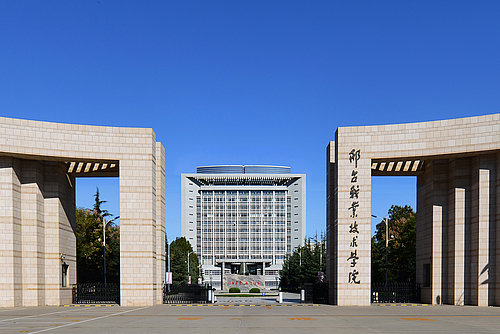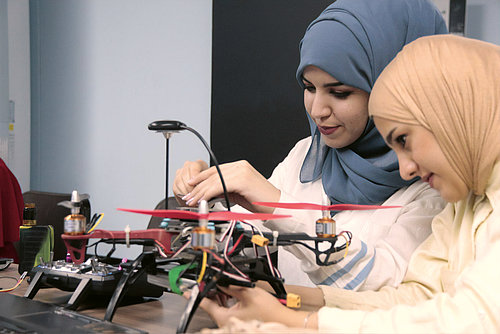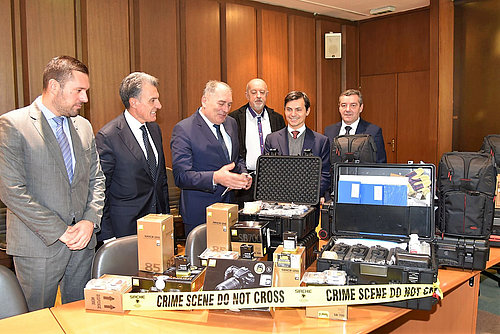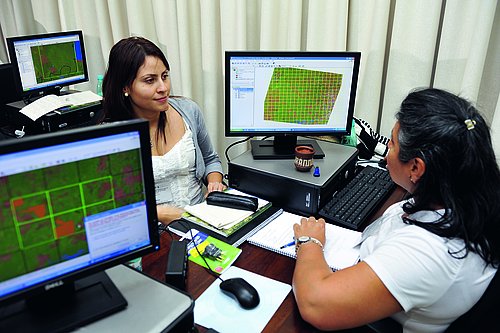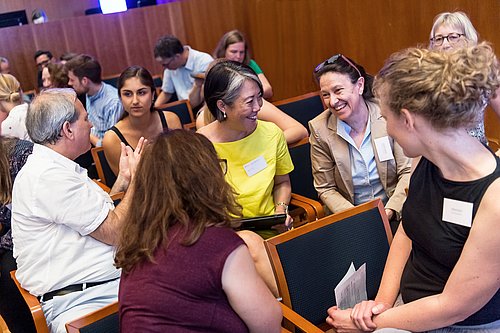Anybody looking for David Larcher might just find him on the roof of a local telecentre where community members can access information digitally. At these centres, residents can engage online with current local issues and projects, for instance developing local infrastructure. ‘I like to roll up my sleeves and lend a hand,’ says the 35-year-old Frenchman, giving the example of antenna installation or repair. However, the network specialist’s main job is as a consultant in northern Cameroon. GIZ assigned him to work there as a digital ambassador. Embedded in a major GIZ municipal development project, Larcher assists several municipalities that have little or no access to the internet in bridging the digital divide.
‘Together we consider which problems can be tackled with existing digital solutions.’
Digital ambassador David Larcher supports communities in Cameroon in developing digital solutions with the local population. (© GIZ / Bosse Klama)
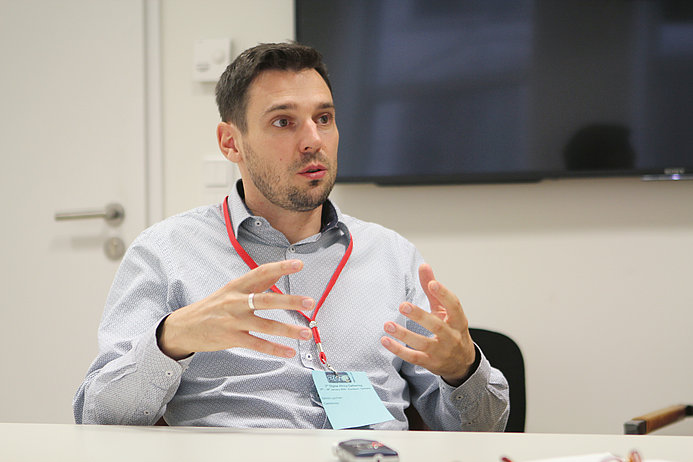
A lot has happened since he arrived at the end of 2018. Local mesh networks have been installed in two communities, reaching up to 12,000 people in sometimes remote villages. Residents there can connect to the network in more than two dozen buildings, for instance using hot spots at health centres, schools and town halls. People can also use refurbished telecentres to work on computers, print out documents or take part in training courses. In addition, a new digital platform for local services can be accessed using the wireless network. In the future, this platform will allow the rural population to learn about issues such as taxes, local events, the municipal budget and construction projects. It will also enable them to take part in digital surveys or put their own content online, for instance reports on their experience with agricultural techniques, and to market their own products. Larcher has a role to play in this platform too. ‘I am out and about a lot talking to people and finding out what they need. Together we consider which problems can be tackled with existing digital solutions.’
Narrowing the digital divide
Larcher is in his element here as one of around two dozen digital ambassadors who have been assigned by GIZ to a number of African countries since 2018. The initiative will be expanded to Asia and Latin America from 2020. Digital ambassadors contribute to digital transformation in underserved regions by putting their expertise to work in a wide spectrum of IT areas.
Larcher has a Master’s degree in network engineering and has worked for telecommunications companies in France, Poland and the South Pacific island of Vanuatu. After that, he decided to take a different path and move into international development. That journey took him first to the United Nations and then to Cameroon as a GIZ digital ambassador.
A traditional concept made fit for the future
Digital ambassador assignments are limited to one to two years. This is because the ambassadors are development workers – experts with a special status who are only available for a short period of time. Since 1969, they have been governed by separate legislation, which stipulates that only EU nationals and Swiss citizens can be seconded as development workers.
Larcher is finding his time in Cameroon fulfilling; he is seeing major changes and enjoying the chance to exchange ideas. ‘And the digital ambassadors also actively discuss ideas with one another, even though we’re stationed in different countries,’ he notes. ‘A colleague was recently looking for public participation software and got several suggestions. We’re constantly learning from one another.’
Strong municipalities
Many municipalities in Cameroon have had little input into political decisions to date, yet they are often the ones affected by the outcomes. Working on behalf of BMZ, GIZ is therefore strengthening the municipalities’ ability to get involved. One focus is on making municipal administration more efficient and improving cooperation with competent national bodies. Innovative, digital approaches make it possible for remote regions to participate more effectively as well. Sustainable municipal development is the overarching goal.
Insights into our projects in 2019
We are active in some 120 countries with 1,600 projects.
Discover the world of GIZ by learning about examples of projects undertaken in the 2019 reporting year.
We are active in some 120 countries with 1,600 projects.
Discover the world of GIZ by learning about examples of projects undertaken in the 2019 reporting year.
Are you interested in other GIZ projects?
